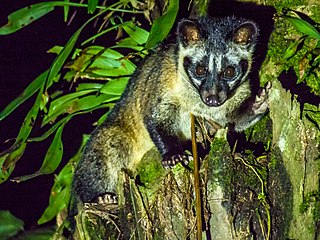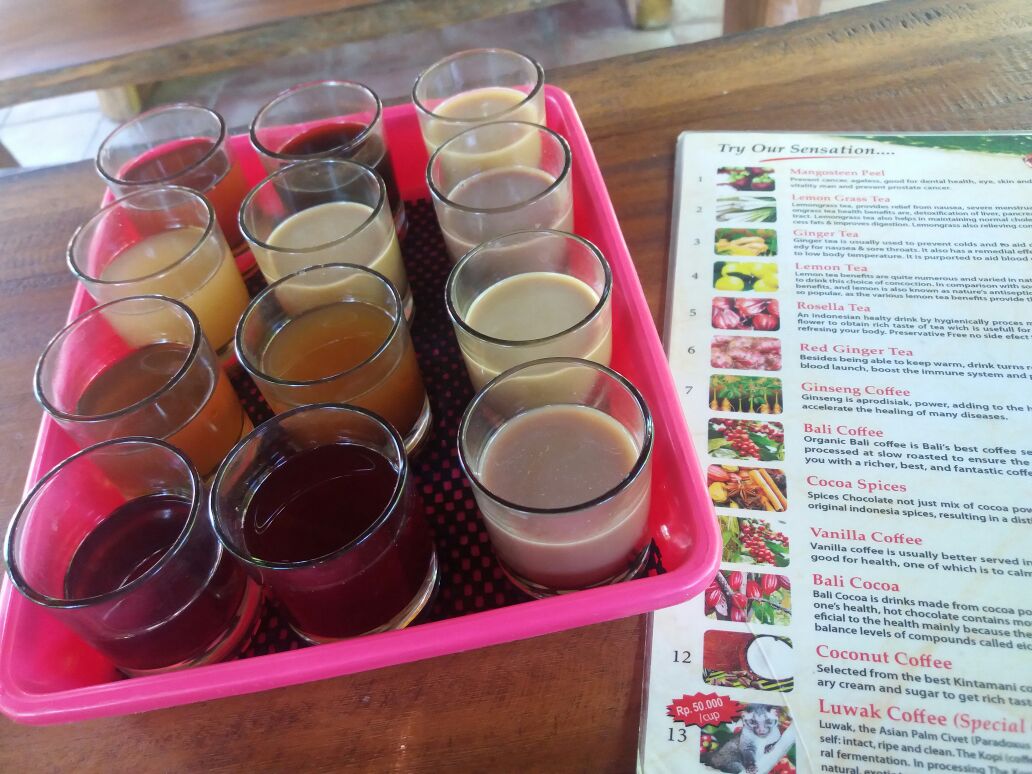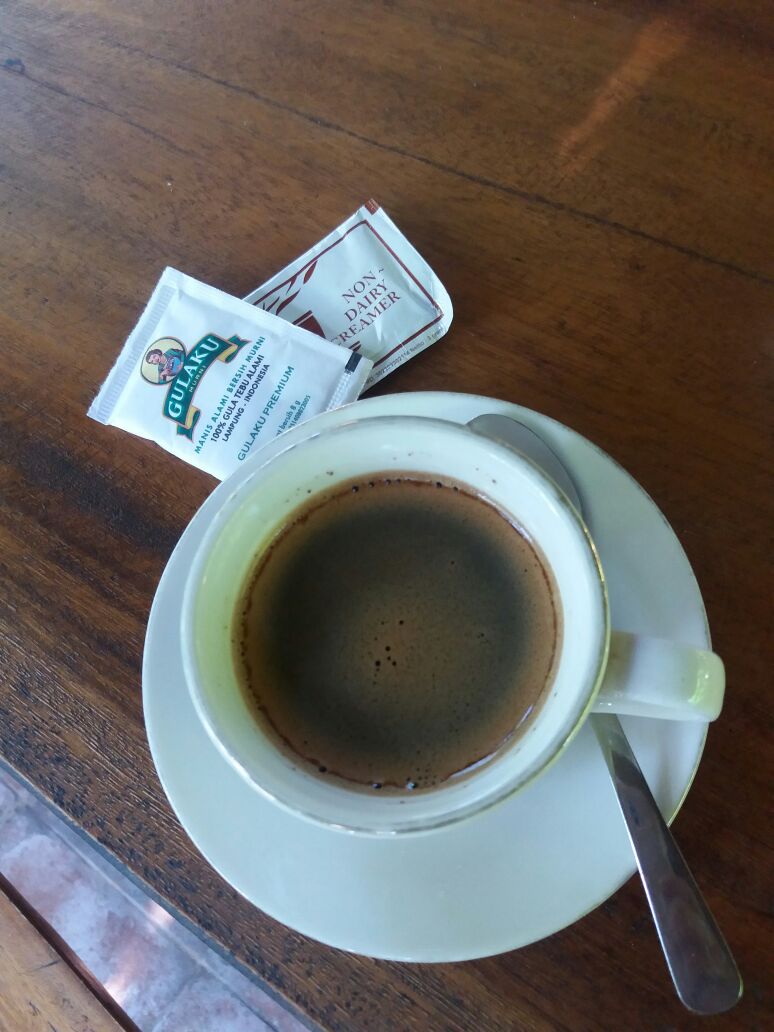What is Kopi Luwak?
What is Kopi Luwak?
(and what makes it the most expensive coffee in the world)
Popular in Bali, Indonesia, kopi luwak (a.k.a. civet coffee or cat poop coffee) refers to partly-digested coffee beans that have been eaten and defecated by Asian palm civets.

Civets pick and eat only the best and ripest coffee cherries. Then, in their digestive tracts, fermentation occurs.
The civet’s digestive enzymes seep into the beans, changing the protein structure and removing some of the acidity. This improves the flavor profile of the coffee, making it smoother and less bitter.
However, civets can only digest the fleshy pulps, and not the actual coffee beans. So, these beans will pass through the civet’s intestines, to be defecated with other fecal matter and later collected for processing and consumption.
If you think that’s gross, please remember that we are Asians. We eat everything.
Is Kopi Luwak Ethical?
In the wild, civets have a varied diet of fruits, seeds, and bugs. This is partly what gives luwak coffee its unique flavor. But scavenging for wild civet dung takes a lot of time and effort. With the growing popularity of luwak coffee (and the amount of money it brings), coffee sellers want more of them beans, and they want them fast.
This has encouraged coffee farmers to start commercial luwak farms where the animals are trapped, caged, and force-fed with only coffee beans and no other food, in order to increase yield. Restricting their diet in this way causes health problems due to nutritional deficiencies.

These farms also usually double as tourist attractions, where tourists come to see how the world’s most expensive coffee is produced — and while they’re at it — take pictures of the civets. The problem is that civets are naturally solitary and nocturnal creatures. Keeping them awake during the day and forcing constant interaction with humans can cause them distress in the long run.
 Fortunately, people are getting better informed on the adverse effects of mass luwak coffee production on the civets. In 2014, Sustainable Agriculture Network (SAN) banned coffee production from caged civets on its Indonesian farms. Similarly, well-known coffee certifiers such as Rainforest Alliance and UTZ Certified have stopped certifying producers who use caged civets in their business.
Fortunately, people are getting better informed on the adverse effects of mass luwak coffee production on the civets. In 2014, Sustainable Agriculture Network (SAN) banned coffee production from caged civets on its Indonesian farms. Similarly, well-known coffee certifiers such as Rainforest Alliance and UTZ Certified have stopped certifying producers who use caged civets in their business.
So, if you’re a luwak coffee fan, it’s up to you to find the ethically-produced ones. Look for the ones bearing Rainforest Alliance and UTZ certifications.
Where to Find Kopi Luwak in Bali


Final Thoughts on Kopi Luwak Bali
So, what does the most expensive coffee in the world tastes like?
It tasted like…(drumroll, please)…coffee.
Much the same way I could drink Evian and Acqua Panna and think they taste no different from tap water, the supposedly special taste of kopi luwak was totally lost on me. I guess a true coffee drinker would have been able to tell the difference. As for me, I would rather just stick to my Old Town White Coffee.

Have you tried kopi luwak? What did you think about it? Comment below.
You May Also Like:




Pingback: Visiting a Coffee Farm in Kiambu, Kenya – Ummi Goes Where?
taste luwak masa travel to bali. for i think its thicker than usual coffee. same like u, i’ll stick to my coffee je la haha
Hahaha, kan? Dengan harga yg macam tu, baik minum kopi biasa je la. Tapi sesiapa yg nak rasa minuman yang pelik dan eksotik, boleh la cuba kopi luwak ni.
I haven’t tried the kopi luak yet and even travel to Bali. My friend pernah lah try. She said it tasted totally exotic. Is that right? Btw Ummi, your Bookworm Interview is now published ya. So pls feel free to check it out. Thank you for your participation.
Yes, I saw the interview yesterday, Fadima. Thank you for publishing it!
As for the luwak coffee, I failed to see or taste anything special about it, unfortunately.
Yes have been to this place and I think have tried the luwak coffee but not sure whether would change it for nescafe haha
Haha, it must have been so unmemorable that you’re not sure whether you’ve tried it or not, kak Fas. I personally think it’s not worth the price or the effort to produce it. But to each his own. 🙂
Hahaha dah 3 kali tau ada ke tempat yang ada jual Kopi Luwak ni, dan tetap juga Sis tak bileh nak minum.. mungkin kalau dari awal mereka tak kata ianya kopi dari najis tupai tu, maybe Sis minum.. hahahahaha
Hahahha. Nanti kalau sis pergi ke Bali sekali lagi, cuba la sesudu. Share dengan member ke. Mana la tau, kot2 terpikat ke dengan rasa dia.
i pernah try luwak kopi ni masa dekat bali..btw masa tu tak tahu lagi..bila tahu rasa nak muntah pun ada hahah.. tapi sedap hehehe
Hahaha kalau nak minum, jangan fikir sangat cara penghasilan dia, nanti tak lalu. Tapi ok la, kira Ayu suka juga la ya rasa kopi luwak ni? Saya tak dapat tangkap apa rasa yg istimewa tu.
Rindunya nak minuk luwak coffee.. I tried and experience the entire preparation processes during my last trip to Bali 5 or 6 years ago… Hehe… Kena repeat ni..
Wow, Kitkat, you’re one of the few people here who actually love luwak coffee. Perhaps I need to go through the entire preparation process too to be able to appreciate it.
haha old town white coffee memang the best..iena pernah minum kopi termahal ni..oklah rasa dia macam same je dgn coffe lain 🙂
Kan, iena? Harga je mahal, takde la istimewa sangat pun rasa dia. Takleh lawan old town white coffee la haha.
Tak pernah minum kopi luwak. Tapi Marina memang tak minum mana-mana kopi pon.hehe
Oo..Marina memang tak minum kopi ya? Sama la saya pun kurang minum kopi, sebab pening. Lebih suka teh.
Femes kopi luwak Indonesia ni. Memula tahu dulu proses nak dapatkan kopi ni, rasa menarik sangat kan. Harap ada rezeki nk cuba kopi ni one day.
Ya, Ana. Proses penghasilan kopi luwak ni sangat unik. Semoga Ana ada rezeki untuk mencubanya nanti. Dan kalau boleh, cuba la dapatkan di tempat yang mengamalkan cara penternakan yang beretika, ya. 🙂
rasanya dulu pernah ada isu tentang kopi ni. taktau lah betul ke tak kan. tengok ramai je minum
Isu apa tu, FD?
I tried it once at bali but at that time, i never really knew much about how the beans were harvested. may your article help other innocent travelers in the future haha!
Haha thank you, Grace. I hope this article won’t turn them off completely. Kopi luwak is still worth a try although I wasn’t too impressed with it.
I tried kopi luwak before when i was in Bali, it’s kind of an acquired taste unlike my daily coffee.
Oh, is it? I didn’t notice any difference in taste from normal coffee, unfortunately.
Pingback: 25 Best Malaysian Souvenirs and Where to Find Them – Ummi Goes Where?
Pingback: Jelajah Ladang Kopi di Kiambu, Kenya – Mengungkap Keajaiban Kopi Terbaik Dunia – Ummi Goes Where?